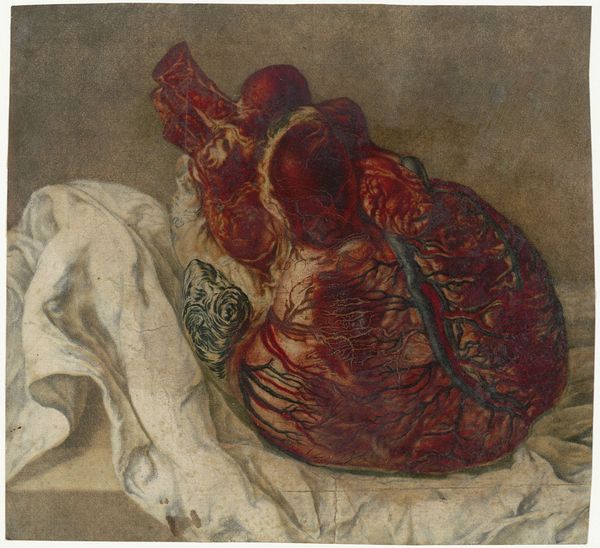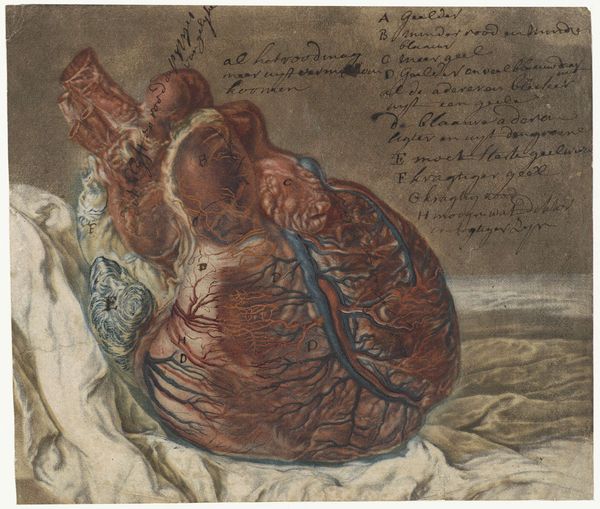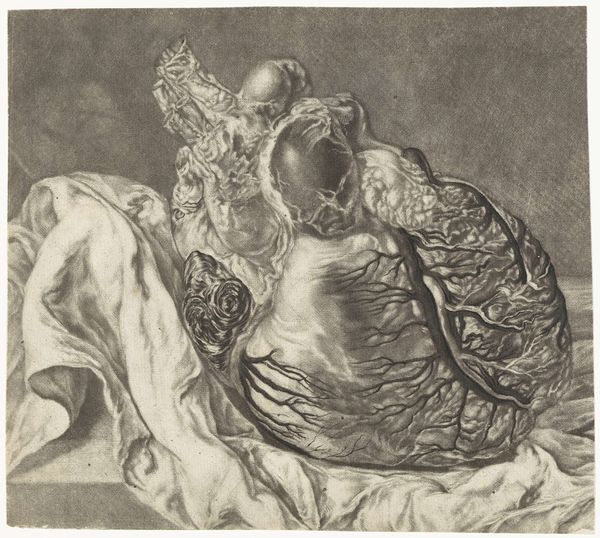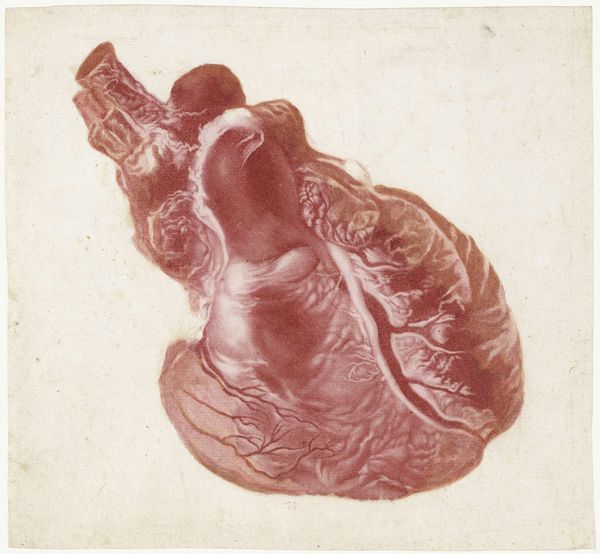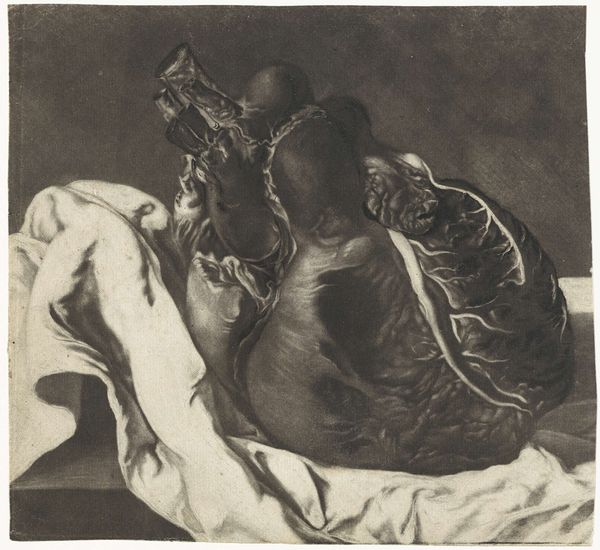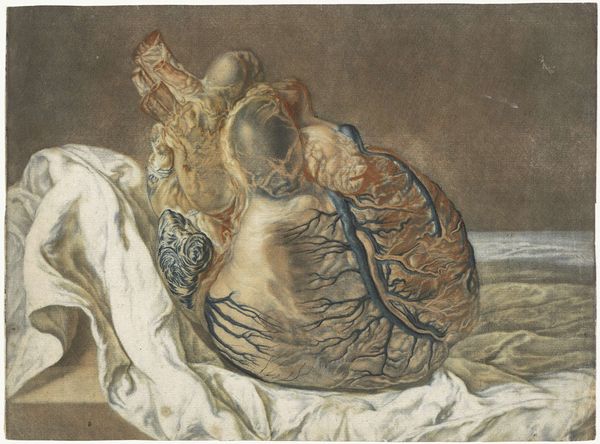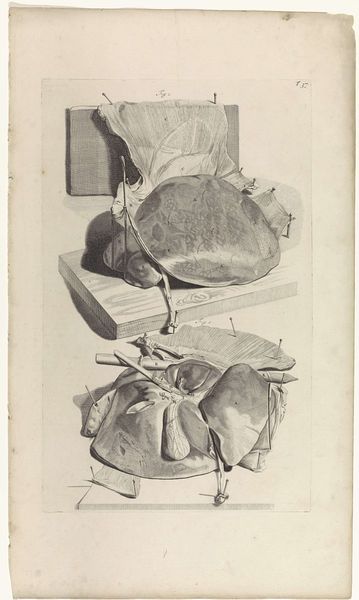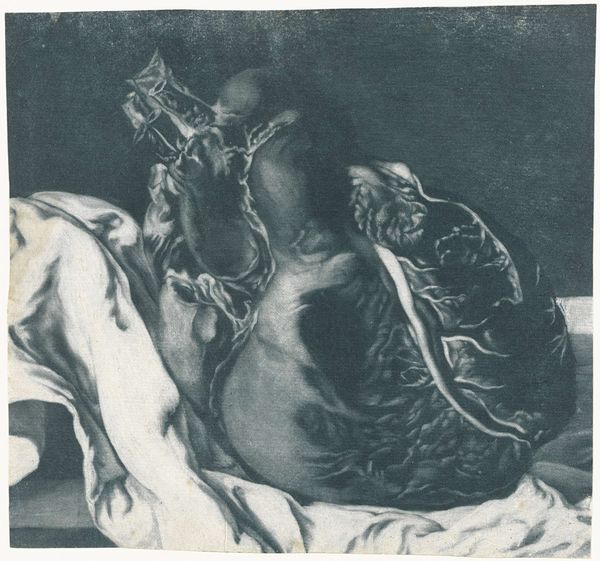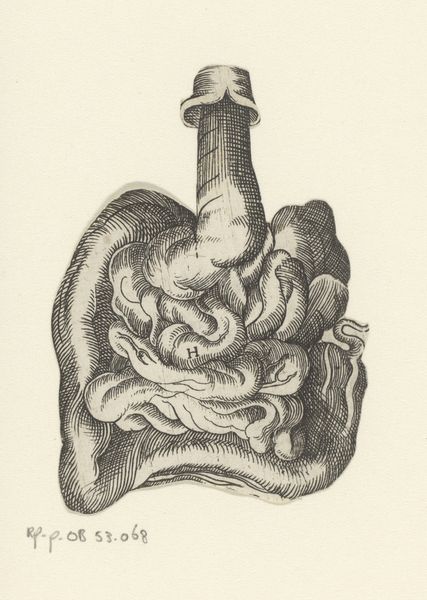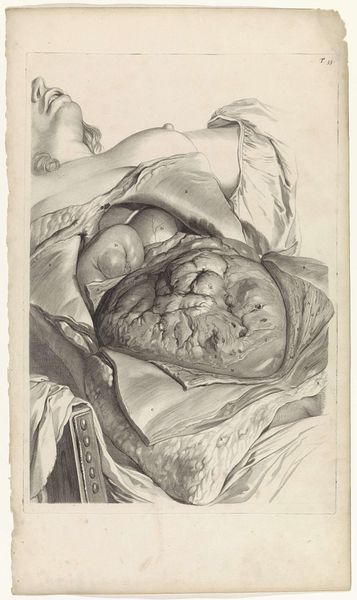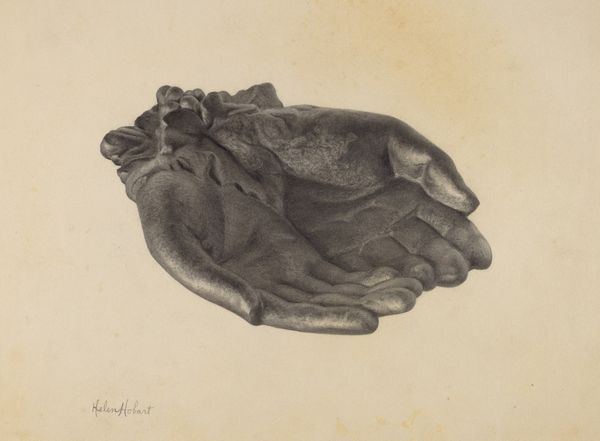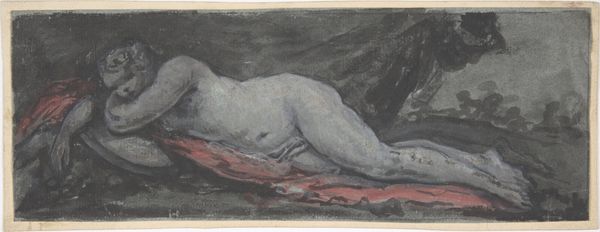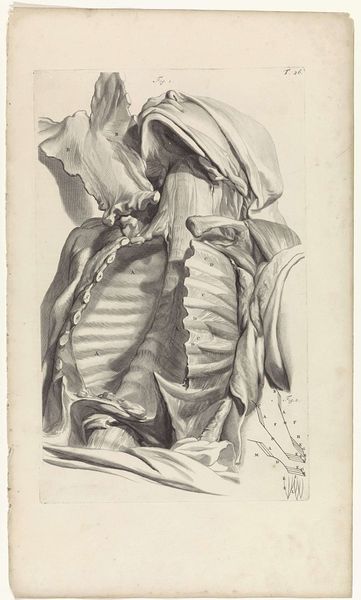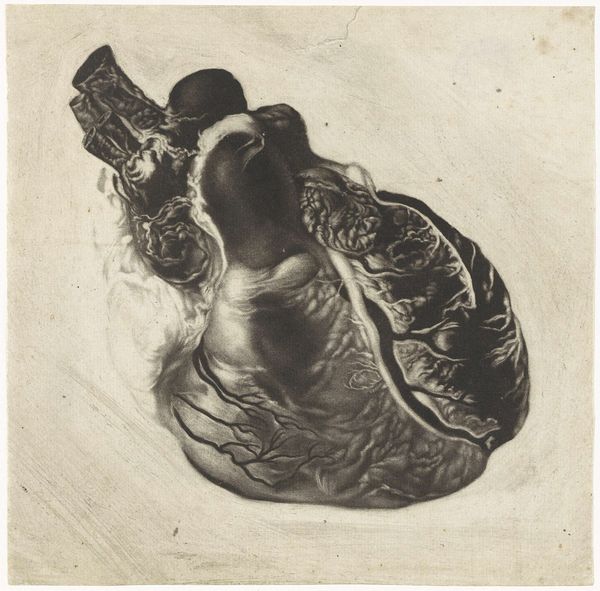
drawing, watercolor, ink, pen
#
drawing
#
oil painting
#
watercolor
#
ink
#
underpainting
#
pastel chalk drawing
#
pen
#
watercolour illustration
#
academic-art
#
watercolor
Dimensions: height 188 mm, width 227 mm
Copyright: Rijks Museum: Open Domain
Editor: This drawing, "Anatomische studie van een menselijk hart," created between 1700 and 1750 by Jan l' Admiral, strikes me as incredibly detailed, almost disturbingly so. What do you see in this piece, beyond the obvious anatomical study? Curator: The unsettling realism you observe points to a fascinating tension in the history of art and science. This work exemplifies the 18th-century's burgeoning interest in empirical observation and its display within the public sphere. It reflects not just scientific inquiry, but also the institutional frameworks that were developing to disseminate knowledge. How do you think this image would have functioned within that social context? Editor: I suppose it would've served both an educational purpose for medical students and perhaps as a spectacle, contributing to a sense of awe and, maybe, control over the human body. Were these types of images common at the time? Curator: Anatomical illustrations were indeed gaining traction, reflecting a shift in attitudes toward the body from religiously sacred to scientifically accessible. The question is how such accessibility shaped public understanding and perception of health, mortality, and even personhood. Editor: So, it wasn't just about documenting anatomy but also about shaping perceptions. That’s much broader than I initially considered. I guess even the artistic style used could subtly shape how viewers understand it. Curator: Exactly. Think about the way the artist has presented the heart—placed delicately on cloth. It isn't simply an organ, it is theatrically presented for consumption, so to speak. Now, considering all that, does your reading of the work change at all? Editor: It definitely does. Now I am reflecting on the theater of medical science! This has changed how I see such images and the public consumption of anatomical imagery in that era. Thanks!
Comments
No comments
Be the first to comment and join the conversation on the ultimate creative platform.
